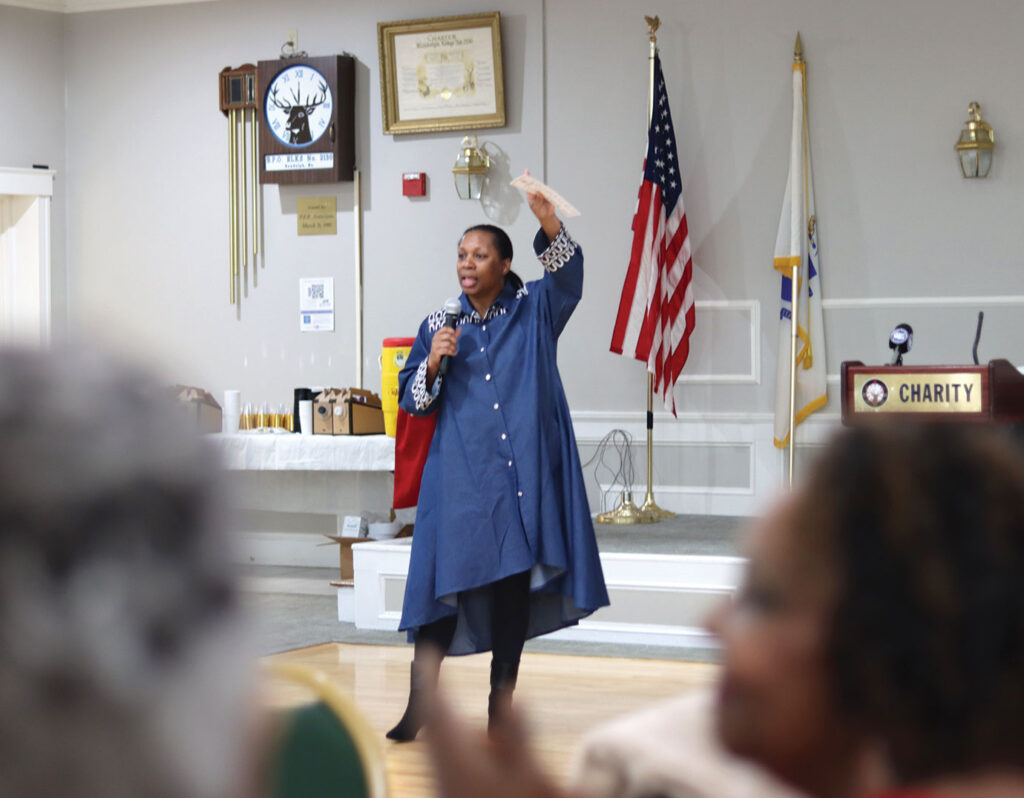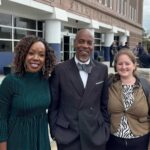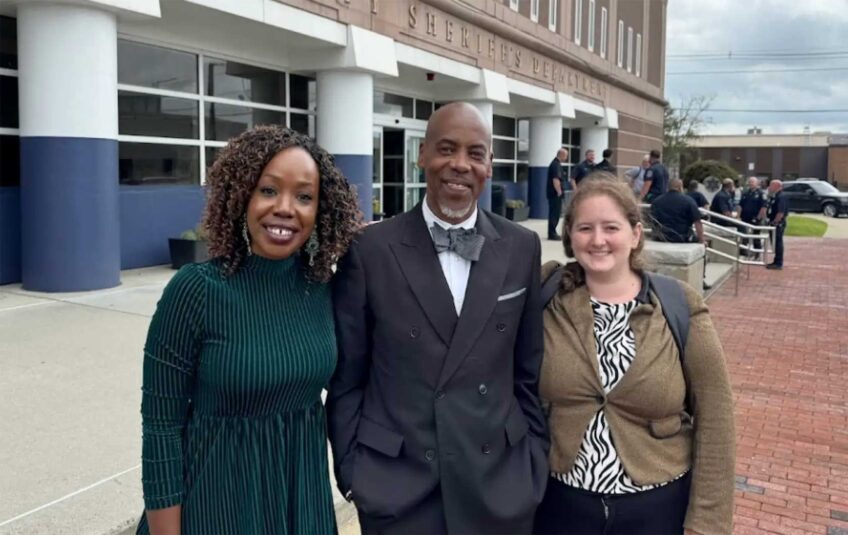
At the annual Martin Luther King Jr. celebration at the Elks Lodge in Randolph last week, political conversations largely revolved around strategies to increase Black representation in elected offices.
In a town where 51 percent of the population identify as African American or partly Black, only one of nine town councilors is Black. Up on Beacon Hill, the four state legislators whose districts include the south suburban town are white.
“We are the most diverse community in Massachusetts,” said school committee member Ida Gordon to applause. “But why is it not reflecting [at] election time?”
Quoting Dr. King’s speech from the 1963 March on Washington, Councilor Katrina Huff-Larmond, the town’s lone Black councilor, said, “‘America has given its colored people a bad check.’ These words remain true now, as in 1963. The march continues. There is still work to be done.”
Longtime concerns over equitable representation heightened in 2022, when Ken Clifton, a key Black town leader and multi-decade district councilor, passed away. And last year, the council shed a Black seat when Natacha Clerger, a Haitian American incumbent, lost re-election to her at-large seat by eight votes.
Of the nine council seats, five are held by at-large members.
Efforts are starting to coalesce around redistricting — unifying Randolph into a single state representative seat, giving Black residents a greater chance of sending an African American to Beacon Hill. The town’s population is currently divided between the 1st and 7th Norfolk seats — held by residents of Milton and Quincy — and has not seen a town resident serve in the Legislature in 30 years.
The last redistricting took place after the 2020 census, and new district maps appeared on the ballot in 2022. The earliest opportunity to unify Randolph into a single district will be after the 2030 census.
The sentiment to pack Randolph into its own seat was captured at the MLK event by Town Manager Brian Howard, who held one finger aloft, as he told the attendees, “We are united as one community, and that community is Randolph.”
Town Councilor Jesse Gordon said he and Huff-Larmond “spoke to the Joint Redistricting Committee at the State House about exactly this issue. And the conclusion was: ‘Well, what do you want us to do?’” According to Gordon, the councilors told the committee chair to make sure “that Randolph is the middle of the state rep district.”
Beacon Hill’s Redistricting Committee is co-chaired by House Majority Leader Michael Moran of Allston and Senate President Pro Tempore William Brownsberger of Belmont.
When announcing the new maps, Moran said, “There was thoughts that we create a Black district down here using Brockton. There were thoughts that we could reconfigure this in some way that [Randolph’s] request could be honored.”
Randolph’s population was 34,984, according to the 2020 census, about 8,500 short of the ideal House district. So any effort putting Randolph at the center of new legislative boundaries would involve including residents of neighboring communities in the newly configured seat.
According to the census, 51.2% of its people marked Black for their race on the survey. The town’s white population decreased 27.9% since the last comprehensive count, while Black, Asian and multiracial groups grew.
These trends track overall demographic shifts in Massachusetts—white residents decreased 7% while Black and Asian groups grew 13.7% and 45.2% respectively. Massachusetts’ multiracial population more than tripled in the decade.
In both of Randolph’s two House districts, white populations are the largest racial group, though both the 1st and 7th Norfolk seats were identified as majority-minority opportunity districts. Any district with less than 50% non-Hispanic white constituents received the label.
The Massachusetts House of Representatives has only two majority-Black districts. Six of the 20 House members of the Massachusetts Black and Latino Legislative Caucus were elected outside of majority-minority districts.
Councilor Huff-Larmond told The Banner that in Randolph, “we definitely have certain resources and practices that will probably connect better with a city like Brockton.” She said Brockton and Randolph shared similar traditions and that “it’s a responsibility of the state to make sure that they connect so that we can work together.”
But that is problematic, given that Randolph does not connect geographically to the City of Champions.
Janil Stephens, whose daughter sang “Lift Every Voice and Sing” at the MLK gathering, said to the audience, “It was asked here today who will stand? Who will take a stand and start being a representative here in Randolph for the diversity that we have here? My question — and it’s a call to action — [is] who will get involved?”
Stephens, an engineer by trade who now works in real estate, recently distributed $3,000 in college scholarships in Ken Clifton’s memory.
In contrast to the Town Council, the Randolph School Committee is relatively diverse. Three of its seven members are Black, and at the MLK celebration several spoke about civic engagement, including the importance of getting out and voting.
School Committee member Ida Gordon said, “We want you to come out, vote. Not only vote — participate, run for office.”
Another school committee member, Cheryl Frazier, pre-empted excuses. “I really don’t want to hear that: ‘I’m not registered.’”
Speaking to The Banner afterwards, both shared their motivations to serve the public.
Frazier noted that she is a retired Boston EMS lieutenant and paramedic.
“So, I came to serve,” she said.
Gordon said, “You have to know that there’s a need and what specific need you’re going to serve. For me, it was special education.” She said she represents everybody in public office, not just her own ethnic group.
Huff-Larmond said, as the event wrapped up, “We might be a majority-minority town, but when it comes to power, we are not. We do not have the power.”






